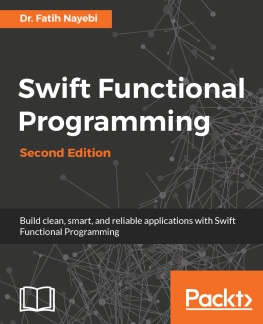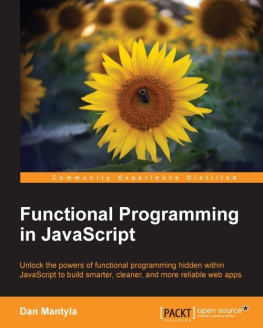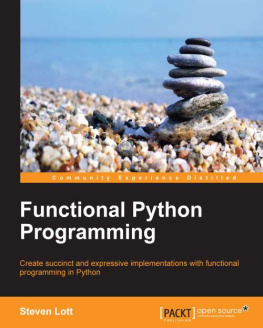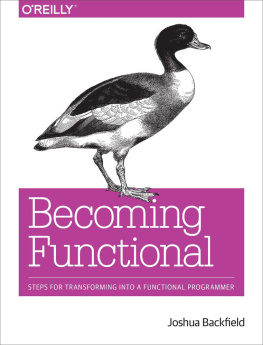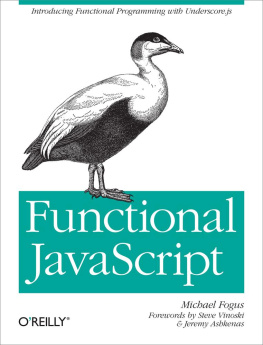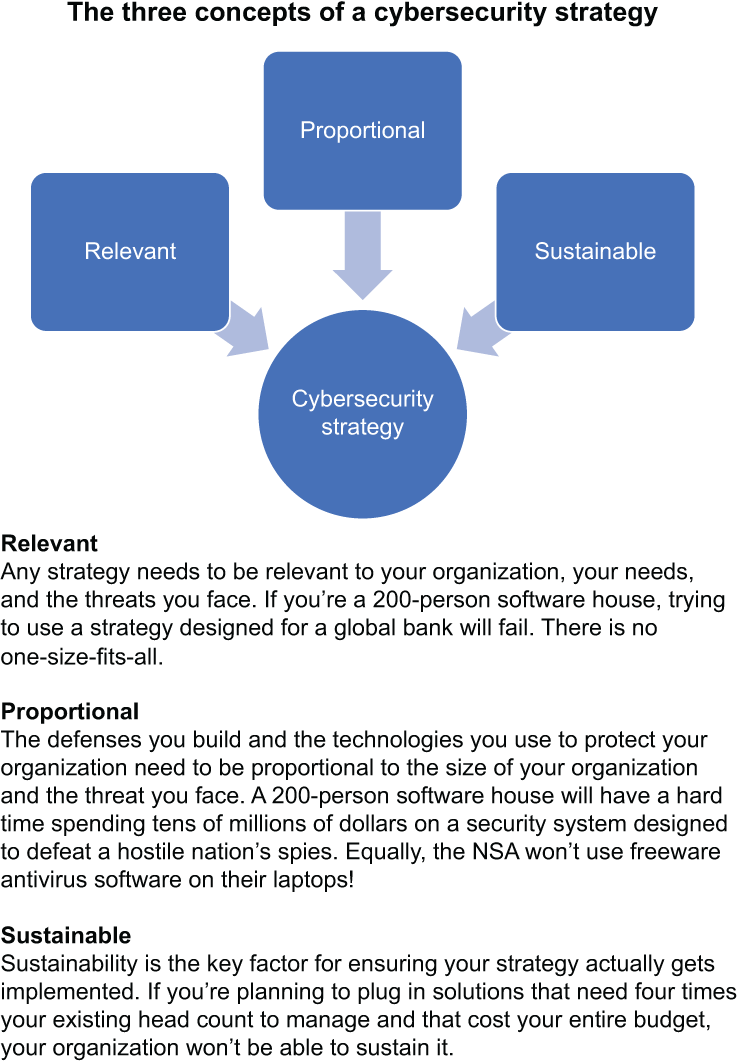Michal Plachta - Grokking Functional Programming
Here you can read online Michal Plachta - Grokking Functional Programming full text of the book (entire story) in english for free. Download pdf and epub, get meaning, cover and reviews about this ebook. year: 2022, publisher: Manning, genre: Computer. Description of the work, (preface) as well as reviews are available. Best literature library LitArk.com created for fans of good reading and offers a wide selection of genres:
Romance novel
Science fiction
Adventure
Detective
Science
History
Home and family
Prose
Art
Politics
Computer
Non-fiction
Religion
Business
Children
Humor
Choose a favorite category and find really read worthwhile books. Enjoy immersion in the world of imagination, feel the emotions of the characters or learn something new for yourself, make an fascinating discovery.
- Book:Grokking Functional Programming
- Author:
- Publisher:Manning
- Genre:
- Year:2022
- Rating:5 / 5
- Favourites:Add to favourites
- Your mark:
Grokking Functional Programming: summary, description and annotation
We offer to read an annotation, description, summary or preface (depends on what the author of the book "Grokking Functional Programming" wrote himself). If you haven't found the necessary information about the book — write in the comments, we will try to find it.
In Grokking Functional Programming you will learn:
Designing with functions and types instead of objects
Programming with pure functions and immutable values
Writing concurrent programs using the functional style
Testing functional programs
Multiple learning approaches to help you grok each new concept
If youve ever found yourself rolling your eyes at functional programming, this is the book for you. Open up Grokking Functional Programming and youll find functional ideas mapped onto what you already know as an object-oriented programmer. The book focuses on practical aspects from page one. Hands-on examples apply functional principles to everyday programming tasks like concurrency, error handling, and improving readability. Plus, puzzles and exercises let you think and practice what youre learning. Youll soon reach an amazing aha moment and start seeing code in a completely new way.
Purchase of the print book includes a free eBook in PDF, Kindle, and ePub formats from Manning Publications.
About the technology
Finally, theres an easy way to learn functional programming! This unique book starts with the familiar ideas of OOP and introduces FP step-by-step using relevant examples, engaging exercises, and lots of illustrations. Youll be amazed at how quickly youll start seeing software tasks from this valuable new perspective.
About the book
Grokking Functional Programming introduces functional programming to imperative developers. Youll start with small, comfortable coding tasks that expose basic concepts like writing pure functions and working with immutable data. Along the way, youll learn how to write code that eliminates common bugs caused by complex distributed state. Youll also explore the FP approach to IO, concurrency, and data streaming. By the time you finish, youll be writing clean functional code thats easy to understand, test, and maintain.
Whats inside
Designing with functions and types instead of objects
Programming with pure functions and immutable values
Writing concurrent programs using the functional style
Testing functional programs
About the reader
For developers who know an object-oriented language. Examples in Java and Scala.
About the author
Michal Plachta is an experienced software developer who regularly speaks and writes about creating maintainable applications.
Table of Contents
Part 1 The functional toolkit
1 Learning functional programming
2 Pure functions
3 Immutable values
4 Functions as values
Part 2 Functional programs
5 Sequential programs
6 Error handling
7 Requirements as types
8 IO as values
9 Streams as values
10 Concurrent programs
Part 3 Applied functional programming
11 Designing functional programs
12 Testing functional programs
Michal Plachta: author's other books
Who wrote Grokking Functional Programming? Find out the surname, the name of the author of the book and a list of all author's works by series.

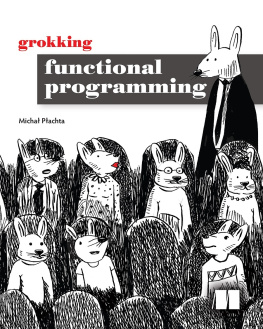
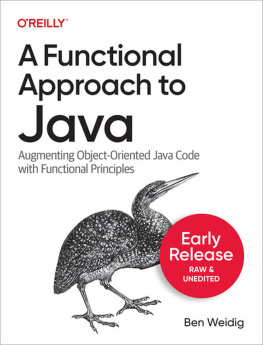

![Anto Aravinth [Anto Aravinth] - Beginning Functional JavaScript: Functional Programming with JavaScript Using EcmaScript 6](/uploads/posts/book/120482/thumbs/anto-aravinth-anto-aravinth-beginning.jpg)
